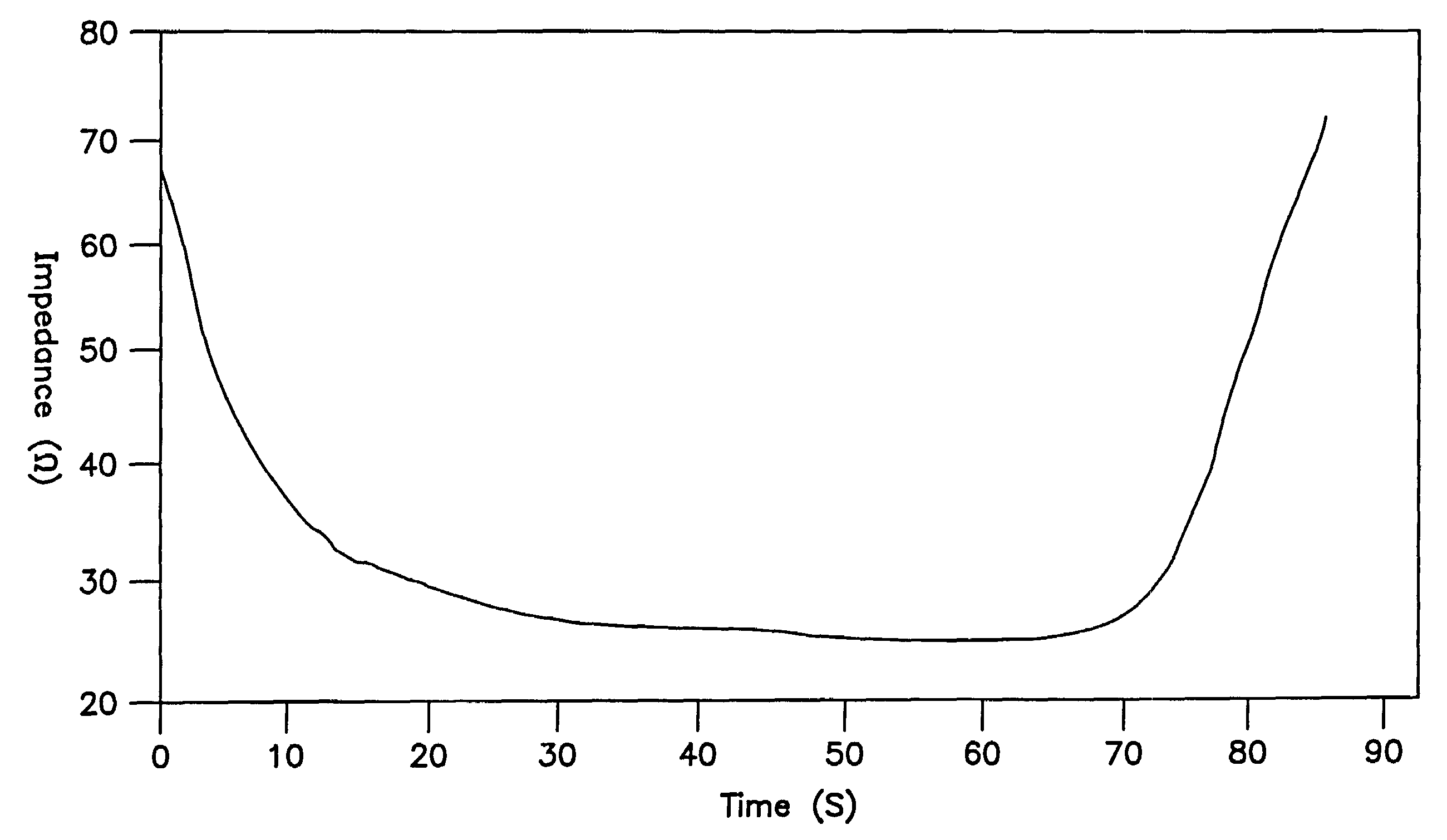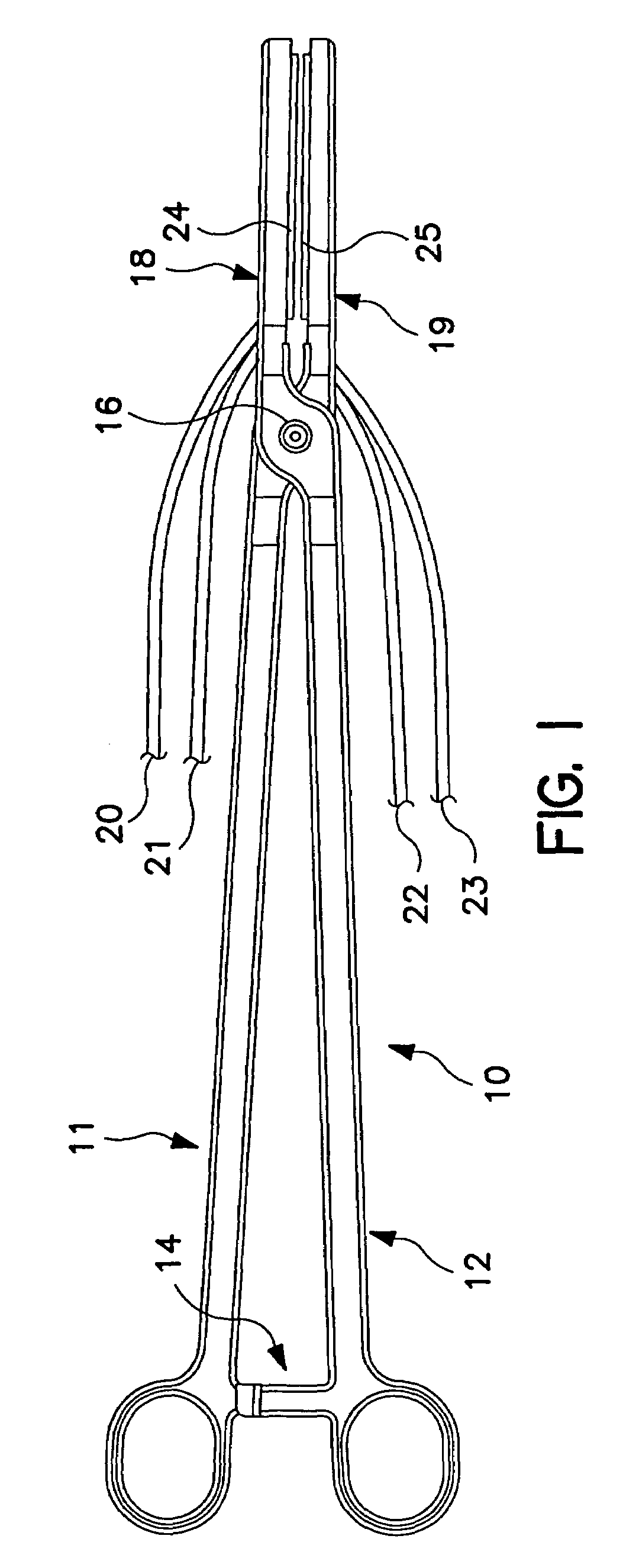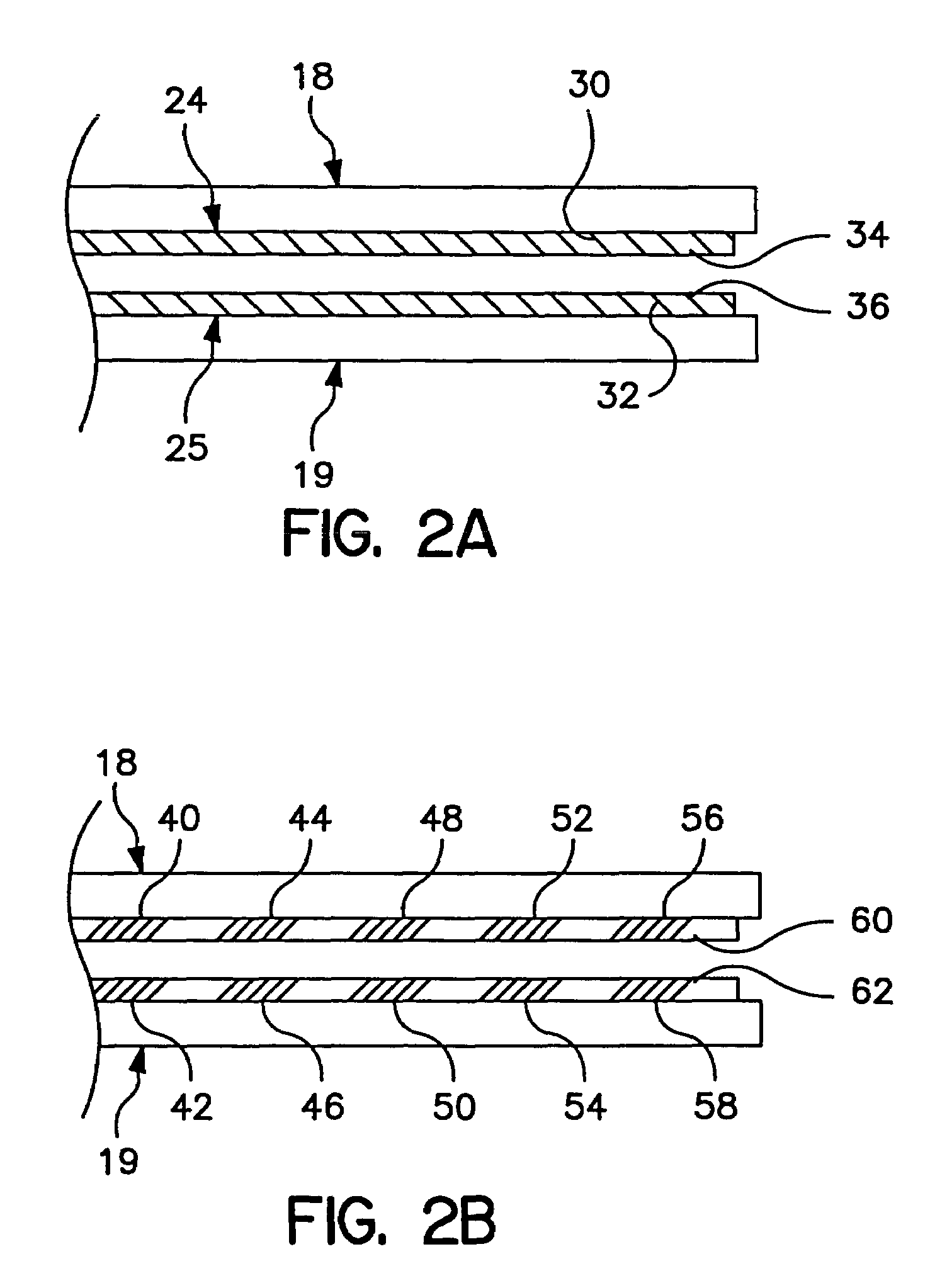Ablation system
a technology of tissue ablation and ablation system, which is applied in the field of tissue ablation devices, can solve the problems of quite complex surgical maze procedures
- Summary
- Abstract
- Description
- Claims
- Application Information
AI Technical Summary
Benefits of technology
Problems solved by technology
Method used
Image
Examples
Embodiment Construction
[0019]FIG. 1 is a plan view of a bipolar, saline irrigated electrosurgical hemostat of a type that may be employed in conjunction with the present invention. The hemostat is provided with elongated handles 11 and 12 and a lock mechanism 14, similar to a conventional surgical hemostat. The handles are connected to one another by pivot or hinge 16, and continue distally in the form of elongated jaws 18 and 19. Jaws 18 and 19 carry an elongated electrode or series of electrodes 24, 25, respectively, to which ablation energy, e.g. RF energy is applied by means of conductors 21 and 22. The electrodes are adapted to be irrigated by a saline solution or other conductive fluid along their length, provided via inlet tubes 20 and 23. In operation, tissue to be ablated is compressed between the jaws, and RF energy is applied between the electrode or electrode sets 24 and 25, as generally described in U.S. Pat. No. 6,096,037 issued to Mulier et al incorporated herein by reference in its entiret...
PUM
 Login to View More
Login to View More Abstract
Description
Claims
Application Information
 Login to View More
Login to View More - R&D
- Intellectual Property
- Life Sciences
- Materials
- Tech Scout
- Unparalleled Data Quality
- Higher Quality Content
- 60% Fewer Hallucinations
Browse by: Latest US Patents, China's latest patents, Technical Efficacy Thesaurus, Application Domain, Technology Topic, Popular Technical Reports.
© 2025 PatSnap. All rights reserved.Legal|Privacy policy|Modern Slavery Act Transparency Statement|Sitemap|About US| Contact US: help@patsnap.com



